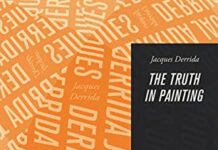
Ebook Info
- Published: 2013
- Number of pages: 308 pages
- Format: PDF
- File Size: 0.87 MB
- Authors: Jacques Derrida
Description
In this newest installment in Chicago’s series of Jacques Derrida’s seminars, the renowned philosopher attempts one of his most ambitious goals: the first truly philosophical argument against the death penalty. While much has been written against the death penalty, Derrida contends that Western philosophy is massively, if not always overtly, complicit with a logic in which a sovereign state has the right to take a life. Haunted by this notion, he turns to the key places where such logic has been established—and to the place it has been most effectively challenged: literature.With his signature genius and patient yet dazzling readings of an impressive breadth of texts, Derrida examines everything from the Bible to Plato to Camus to Jean Genet, with special attention to Kant and post–World War II juridical texts, to draw the landscape of death penalty discourses. Keeping clearly in view the death rows and execution chambers of the United States, he shows how arguments surrounding cruel and unusual punishment depend on what he calls an “anesthesial logic,” which has also driven the development of death penalty technology from the French guillotine to lethal injection. Confronting a demand for philosophical rigor, he pursues provocative analyses of the shortcomings of abolitionist discourse. Above all, he argues that the death penalty and its attendant technologies are products of a desire to put an end to one of the most fundamental qualities of our finite existence: the radical uncertainty of when we will die. Arriving at a critical juncture in history—especially in the United States, one of the last Christian-inspired democracies to resist abolition—The Death Penalty is both a timely response to an important ethical debate and a timeless addition to Derrida’s esteemed body of work.
User’s Reviews
Reviews from Amazon users which were colected at the time this book was published on the website:
⭐This book is worth getting for the first session of the seminar alone. Derrida challenges his readers, who likely are against the death penalty (I certainly am), by showing that the argument against the death penalty always turns on its application (cruel and inhuman) not on the principle of the death penalty. He “begins before beginning” by giving a highly original and illuminating close reading of several passages from Exodus and addresses the contradictions between the commandment though shalt not kill and the death penalty for several offenses that follow in the judgments that supplement the decalogue. His larger argument (p. 32-33) is that the question “What is the death penalty?” or the question “what is the essence of the death penalty?” must be addressed historically and indirectly. Aligning Socrates, Jesus, a ninth century Islamic philosopher, and Joan of Arc, Derrida shows that in each case, the person put to death transgressed a religious offense, heard another voice (of the gods or of God) considered to be foreign and threatening. The death penalty plays out not only in a theater, a spectacle with witnesses, as Michel Foucault argues in
⭐, but in a religious and political context. The problem with arguments in favor of abolishing the death penalty (and Derrida deeply wants to see the death penalty abolished), the problem is that arguments in against the death penalty and for it are governed by the same structure. There is no anti-theologico-politico structure, no atheologoico-politico structure. What needs to be understood is that the structure admits of another voice, a counter-message that cannot be heard, that has to be suppressed in a moment that is always tele-technical (hence the numerous films in which the telephone plays a crucial role–will a stay of execution be granted at the last minute? For Derrida the suspension of this moment is crucial. In over just one page (p. 32-33), Derrida show that the question of the death has to be addressed through another question: what is the theologico-politico structure in which we will find the death penalty? In second half of the first session, Derrida discusses the fate of the corpse, a fate possibly worse than the death penalty, in the moment in the Gospel of John when Jesus says “do not touch me” to Mary Magdalene (he appears before he goes to heaven as “mort vivant.” In the second session, Derrida returns to Carl Schmitt’s
⭐and asks “what is the exception?” and “how is the exception related to cruelty?” (and Derrida also asks “what is cruelty?”) (See Derrida’s earlier discussion of Schmitt in
⭐After the first two sessions, Derrida focuses mainly on Victor Hugo’s writings on the death penalty (
⭐) and Albert Camus’ “Reflections on the Guillotine” (
⭐). Characteristically, however, Derrida brings in many other works along the way. The last two pages are awe-inspiring. Derrida concludes the death penalty will survive even if it is abolished. This is a bracing, deep, and very accessibly written book. Anyone interested in the death penalty should read it, in my view, along with two books Derrida cites,
⭐and
⭐Derrida gives a brilliant analysis of a very difficult topic and how it defines much of our philosophical thinking and what it means to be human.
Keywords
Free Download The Death Penalty, Volume I (The Seminars of Jacques Derrida Book 1) in PDF format
The Death Penalty, Volume I (The Seminars of Jacques Derrida Book 1) PDF Free Download
Download The Death Penalty, Volume I (The Seminars of Jacques Derrida Book 1) 2013 PDF Free
The Death Penalty, Volume I (The Seminars of Jacques Derrida Book 1) 2013 PDF Free Download
Download The Death Penalty, Volume I (The Seminars of Jacques Derrida Book 1) PDF
Free Download Ebook The Death Penalty, Volume I (The Seminars of Jacques Derrida Book 1)





